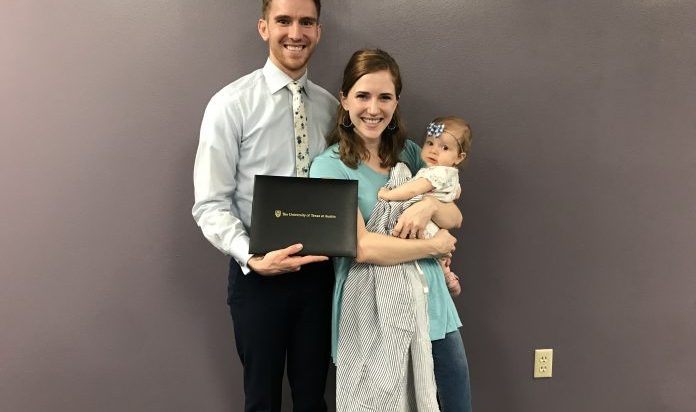From Teach for America to Massachusetts General Hospital: Sean Bullock’s Powerful Journey

Sean Bullock graduated from college with a degree in Italian language and literature. Due to the siloed nature of his studies, Sean was faced with a predicament: pursue an academic career or try something completely new. Either way, he knew he wanted to have a job with purpose.
With help from a friend, Sean landed his first job as a technical success specialist at a computer software firm. While this job was a stepping stone that didn’t require him to code, it foreshadowed his future accomplishments. He enjoyed learning the basics of programming. “I started getting into CSS, HTML, and JavaScript. It was my favorite part,” Sean said.
A couple of years later, Sean returned to his teaching roots, helping underserved communities with Teach for America. But he had a wife and newborn baby to care for, and he found himself anxious to shift to a career with growth potential. “I knew I had to make a sacrifice and prepare for the future,” Sean said. He thought back to his love of programming and knew it would be the right step.
After looking at several coding boot camps online, Sean decided to enroll in the Houston Coding Boot Camp. The six-month, part-time program offered him an official certification of completion from UT Austin, allowed him to work full-time, and take care of his newborn baby—in other words it was a no-brainer.
Finding himself through creative projects
Sean’s group projects allowed him to express his innate creativity while gaining in-demand tech skills in the process.
His first project examined challenging social situations. Everyone dreads the awkward silence that ensues after two people run out of things to say. Sean and his groupmates tackled this problem by creating Small Talk—an app that helps keep the conversation flowing by recommending topics.“Whether it’s for an upcoming interview, a first or second date, or even just lunch with a friend—when users are not good with small talk, the app can give example topics to ask about,” he said, adding that the app is connected to a weather API, and contains a joke and news section.
Sean’s second and favorite group project was a tool that builds online portfolios for job-seeking users. “We were at a point of starting to apply for jobs, and I didn’t know what I wanted my portfolio to look like. I remember thinking that there’s no way I’m the only person in the world who feels this way,” he said.
The project allowed him to exercise his front-end design prowess. “We also created templates to choose how they wanted their portfolio to look—dark, light, or neutral,” he said, adding that the aesthetics of a branded portfolio can definitely give candidates an edge over their competition when applying for jobs.
For Sean’s final group project, his team created Scent, a perfume subscription service that allowed users to test out fragrances before committing to a full bottle. “I really like smelling good, but perfumes cost so much money,” he said. Scent solves this by sending perfume samples to your home for a fixed fee every month.
Having the freedom to work on such a dynamic range of projects helped Sean prepare for the constantly evolving world of technology.
Taking the right advice
Sean appreciates how the boot camp allowed him to build new skills on top of old ones with every new class. “But if you’re not spending time outside of class to actually practice, then you won’t be ready for an engineering position,” he said.
He recommends spending at least 20 hours a week outside the boot camp to master your coding skills. Sean understands how difficult it can be—he had to juggle a full-time job and caring for a newborn on top of attending class and self-study. “Time commitment was a huge obstacle, and planning was the key,” he said.
“Do projects that are meaningful to you—it makes a huge difference,” he said, adding that he was so proud to show what he could do even if it wasn’t perfect.
“Become friends with your coaches, TAs, and instructors. They are amazingly talented and smart,” he said. Sean credits his instructor, Rachel, for helping him take the next career step. She wrote a glowing letter of recommendation when he was applying for a job at Massachusetts General Hospital. “I know that was what pushed me over the edge for the job,” he said.
Taking risks and finding meaningful work
Sean got the job and now works as a software engineer for the neurology department, helping data scientists and PhD researchers refine an algorithm that can identify if patients are at increased risk of a fatal blood infection or other diseases.
“My team is building a way for the hospital to use real-time data to treat patients and prevent disease before it happens,” he said, adding that if doctors catch the blood infection in time, they can prevent unnecessary deaths.
“I’m working with data scientists and PhD researchers—the smartest people I’ve ever met. The learning curve is huge—from new coding languages to vocabulary to working with massive amounts of data,” he said.
While Sean didn’t generate huge data sets during his boot camp projects, he’s able to extrapolate his coding skills like SQL to query the hospital database to make it searchable within their portal. “The skills that I learned at the boot camp allowed me to be successful at this job,” he said.
Without the knowledge he gained at boot camp, Sean wouldn’t have had the courage to move his family cross-country from Houston to Boston.

 Live Chat
Live Chat